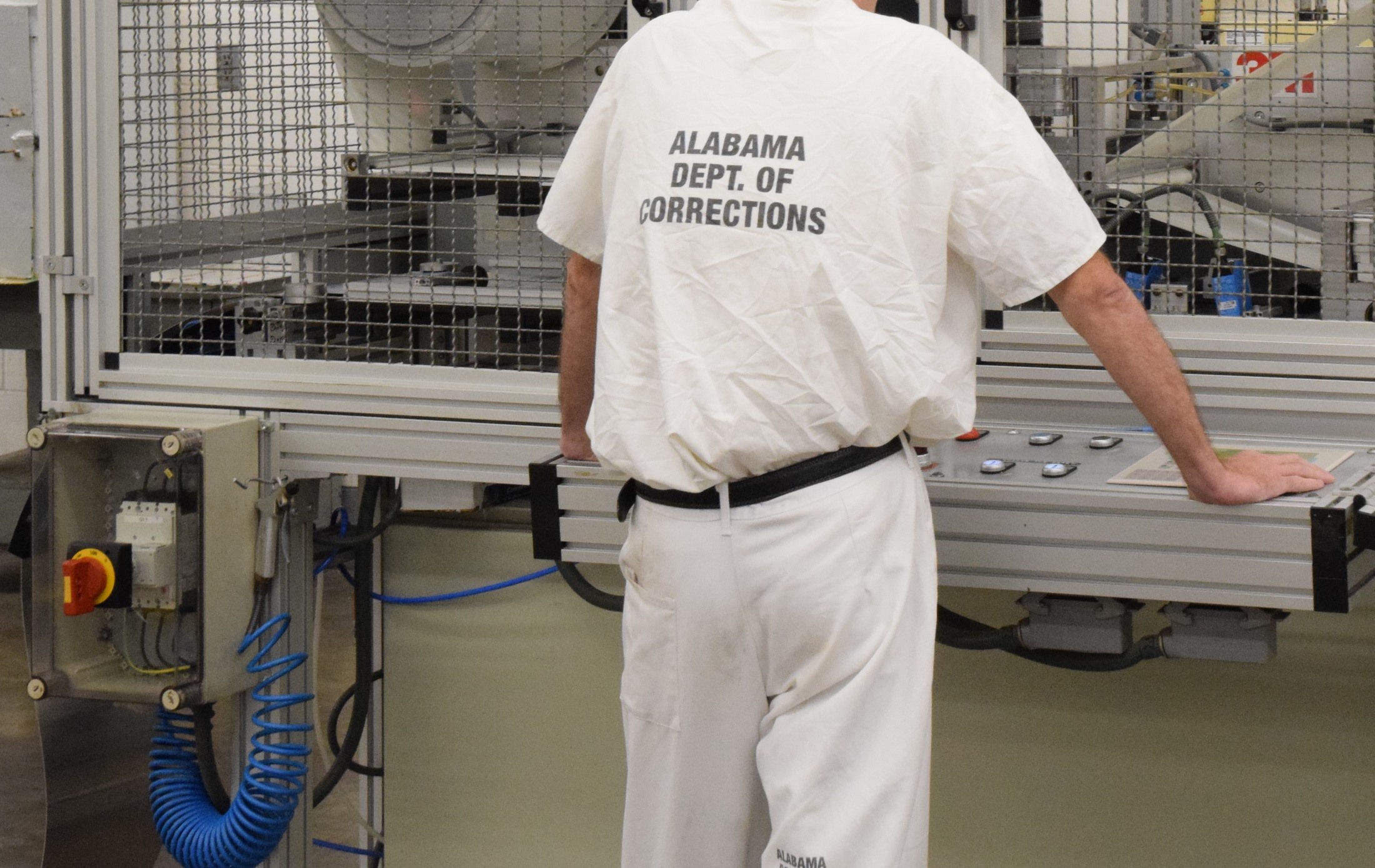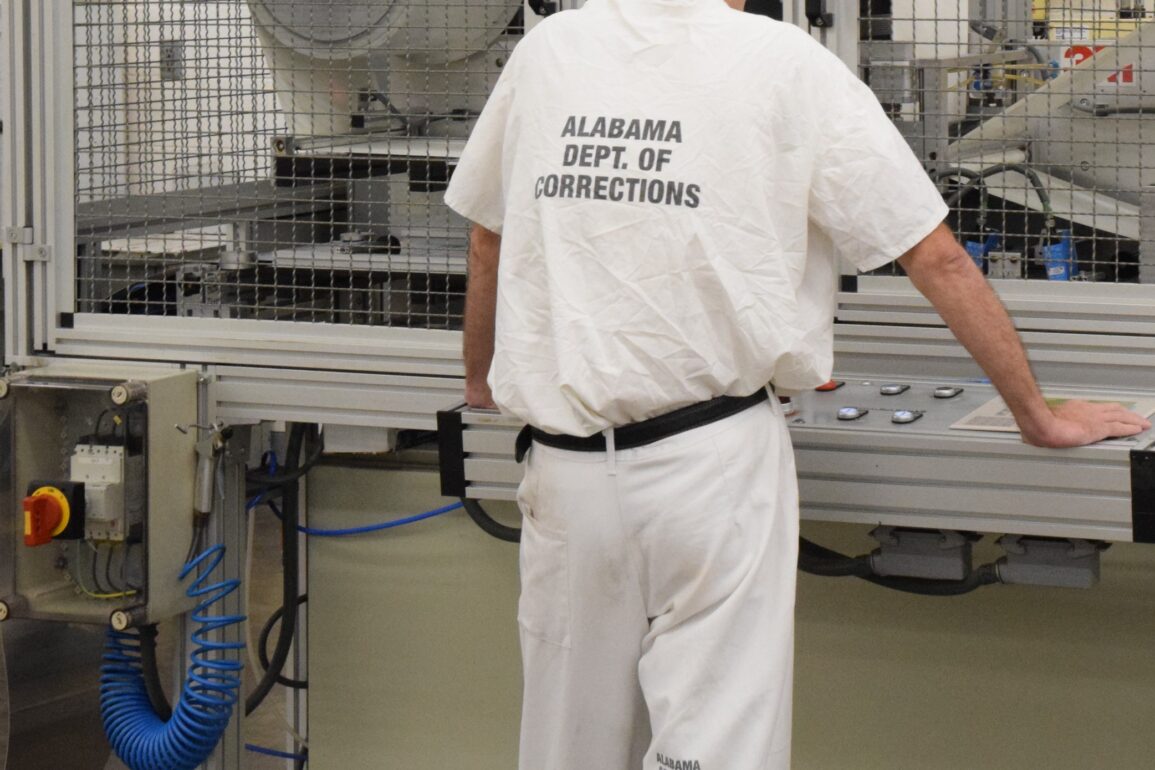
Alabama’s prison labor program system is a form of modern-day slavery, according to a 126-page lawsuit filed by former and currently incarcerated Alabamians, unions and civil rights organizations on Tuesday morning.
The lawsuit, filed in U.S. District Court for the Middle District of Alabama in Montgomery, alleges that Alabama prison labor is sustained by punishing those who refuse to work or those who encourage other prisoners to refuse to work. It also accuses public and private entities, ranging from local governments to fast food restaurants and grocery stores, of benefitting from the labor.
“They have been entrapped in a system of ‘convict leasing’ in which incarcerated people are forced to work, often for little or no money, for the ‘benefit of the numerous government entities and private businesses that ’employ them,’” the lawsuit alleged.
The Alabama Department of Corrections said Tuesday it does not comment on ongoing litigation.
The plaintiffs in the lawsuit — who include currently and formerly incarcerated Alabamians, three unions representing service industry employees and the Woods Foundation, a civil rights organization — are asking the court to issue an injunction, ending Alabama’s current practice of “forced [prison] labor;” to release individuals qualified for parole; require the state to pay the plaintiffs what they earn through working in the prison system, as well as monetary damages to be determined at trial.
GET THE MORNING HEADLINES DELIVERED TO YOUR INBOX
Lakiera Walker, one of the plaintiffs in the lawsuit and paroled in 2023, said in a conference call Tuesday that she endured dreadful work conditions in the 15 that she was incarcerated at the Julia Tutwiler Prison and a work-release program in Birmingham, when she was required to work outside of prison as a condition for her release.
“I started working at a place called Southeastern Meats. It was a warehouse. It was a freezer. We would work from 2 p.m. to 2 a.m. — 12 hours a day — with no sufficient clothing is job,” she said. “Some days you were freezing, freezing cold between 30 and 40 degrees.”
Walker alleges she was sexually harassed by her supervising officer, when she was working for Jefferson County doing road work from 2018 to 2020 making $2 a day. After reporting the incident, she was reprimanded for refusing to work and had to work additional hours.
“So many women on the inside now that are afraid to speak out for fear of retaliation,” she said. “Those women they really need help. They really need a voice.”
Janet Herold, legal director at Justice Catalyst Law and an attorney representing the plaintiffs, compared the current system to Alabama’s convict-leasing system, which ran from the 1870s to 1928. Under convict-leasing, private companies paid the state for uncompensated labor by state inmates, most of whom were Black, to work in degrading and often deadly conditions.
The lawsuit claims Alabama made almost half a billion dollars from prison labor in 2023.
“We’re not talking here today about a new Jim Crow, we’re talking here about the old Jim Crow,” Herold said.
The lawsuit also alleged that the state grew these programs by favoring white over Black prisoners in parole decisions for release. It further alleges that the Alabama Board of Pardons and Paroles, which has sharply curtailed parole grants in recent years, has “unlawfully refused to release people from prison and further skewed the racial composition of the incarcerated population by wrongfully denying parole to thousands of Alabamians—and to Black Alabamians in particular.”
A message seeking comment from the Alabama Board of Pardons and Paroles was left on Tuesday.
The lawsuit alleged the parole board, under directions from Gov. Kay Ivey and Attorney General Steve Marshall, “has unlawfully refused to release people from prison and further skewed the racial composition of the incarcerated population by wrongfully denying parole to thousands of Alabamians—and to Black Alabamians in particular.”
Ivey and Marshall’s offices did not return requests for comment on Tuesday.
Alimireo English, a plaintiff currently incarcerated at the Ventress Correctional Facility, was denied parole in November. English said he has been forced to supervise a dorm of 190 incarcerated people, without any supervision from a correctional officer.
English said in the conference call that he holds keys to gates and doors, works 12-14 hours a day, sometimes seven days a week, and is on call 24 hours a day.
His work allows the administration to use their limited staff in more unstructured dorms, he said, or to give them days off for “employees who are themselves relying on the parole ready inmates.”
“Why would the slave master, by his own free will,” he asked, “release men on parole who aid and assist them in making their paid jobs easier and carefree?”
SUPPORT NEWS YOU TRUST.
This post was originally published on this site be sure to check out more of their content.









